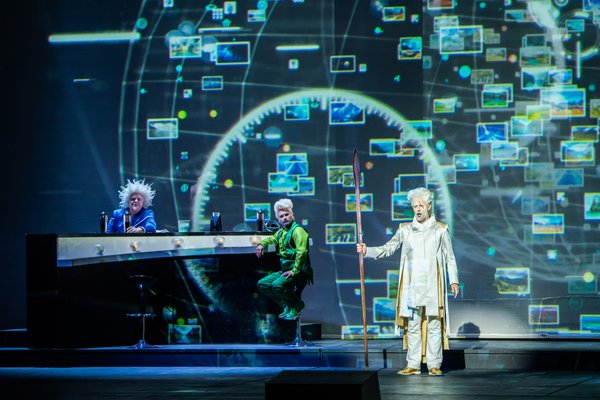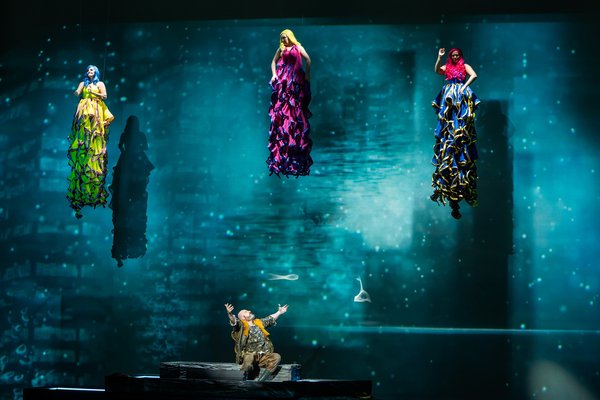
DAS RHEINGOLD
3 November 2023, 6 p.m.
In Brief
Opera in one act, in German with Hungarian, English, and German subtitles
The first part of Wagner's tetralogy is a prologue depicting the 'original sin' committed when the dwarf Alberich renounces love to be able to forge from the stolen Rhine gold a ring that gives him infinite power. Wotan, king of the gods, resolves to take it from him. But what will come of this disruption of the natural order that violates every written and unwritten law? The Hungarian State Opera enlisted Béla Balázs Prize-winning animated film director Géza M. Tóth for the mammoth artistic undertaking that commences in the spring of 2015: the re-conceptualisation of the entire Ring Cycle.
We wish to inform you that we occasionally use light effects that may be disturbing or excessively bright for some members of the audience.
Details
- Location
- Hungarian State Opera
- Date
- Nov. 3, 2023
- Start time
- 6 p.m.
- End time
- 10 p.m.
Synopsis
At the bottom of the River Rhine, three Rhinemaidens guard an invaluable treasure: the Rhinegold. Alberich, the Nibelung dwarf, is enchanted by the girls’ beauty, but after they mock him, his interest shifts to the glittering gold. The girls carelessly reveal the gold's secret: whoever forges it into a ring can use its power to rule the entire world. In order to do this, however, he must also renounce love forever. Alberich curses love and seizes the gold.
Gallery
Reviews
"The videos projected on the scrim give us a glimpse into Wotan’s brain or the technical fate of our civilisation – or at least the future of Géza M. Tóth’s Ring… We are left to feel free to associate, and at crucial moments the production clearly explains what it wants."
Jörn Florian Fuchs, Nordbayerischer Kurier

